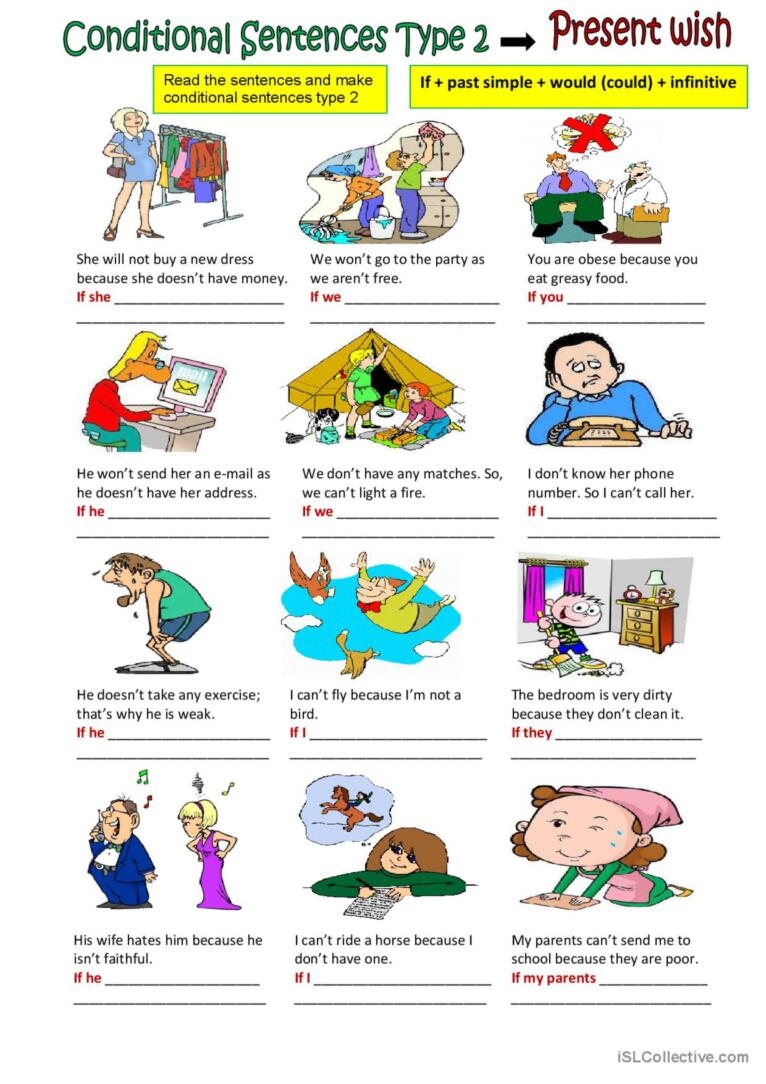In English grammar, conditional sentences are used to express possible or imaginary situations and their consequences. Conditional sentence type 2 is used to talk about situations that are not likely to happen in the present or future. These sentences have a simple past tense in the if-clause and would/could/might + base form of the verb in the main clause.
Exercise is a great way to practice and improve your understanding of conditional sentence type 2. By doing exercises, you can become more familiar with the structure and usage of these sentences, making it easier to use them correctly in your own writing and conversations.
Example Exercise:
Complete the following sentences with the correct form of the verb:
1. If I __________ (win) the lottery, I would travel around the world.
2. If she __________ (study) harder, she could get better grades.
3. If it __________ (rain) tomorrow, we would stay indoors.
4. If they __________ (ask) me nicely, I might consider helping them.
5. If he __________ (have) more time, he could finish the project.
Now, let’s check the answers:
1. If I won the lottery, I would travel around the world.
2. If she studied harder, she could get better grades.
3. If it rains tomorrow, we would stay indoors.
4. If they asked me nicely, I might consider helping them.
5. If he had more time, he could finish the project.
By practicing exercises like these, you can improve your understanding of conditional sentence type 2 and gain confidence in using them correctly. Remember to pay attention to the verb forms and the structure of the sentences to ensure you are expressing the intended meaning accurately.
In conclusion, exercises are a helpful tool for mastering conditional sentence type 2. By regularly practicing and testing your knowledge, you can enhance your language skills and communicate more effectively in English. Keep practicing and don’t hesitate to seek further exercises to reinforce your understanding.
